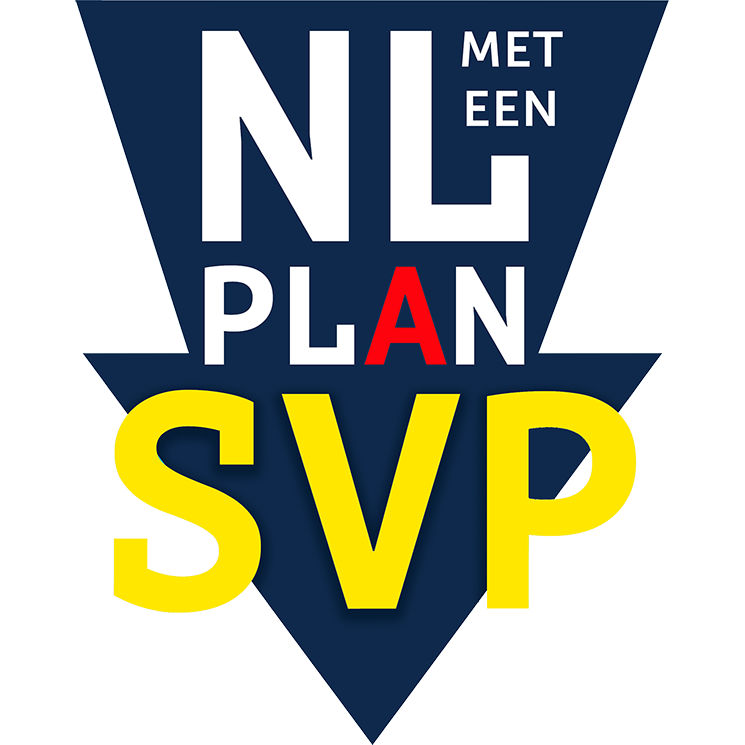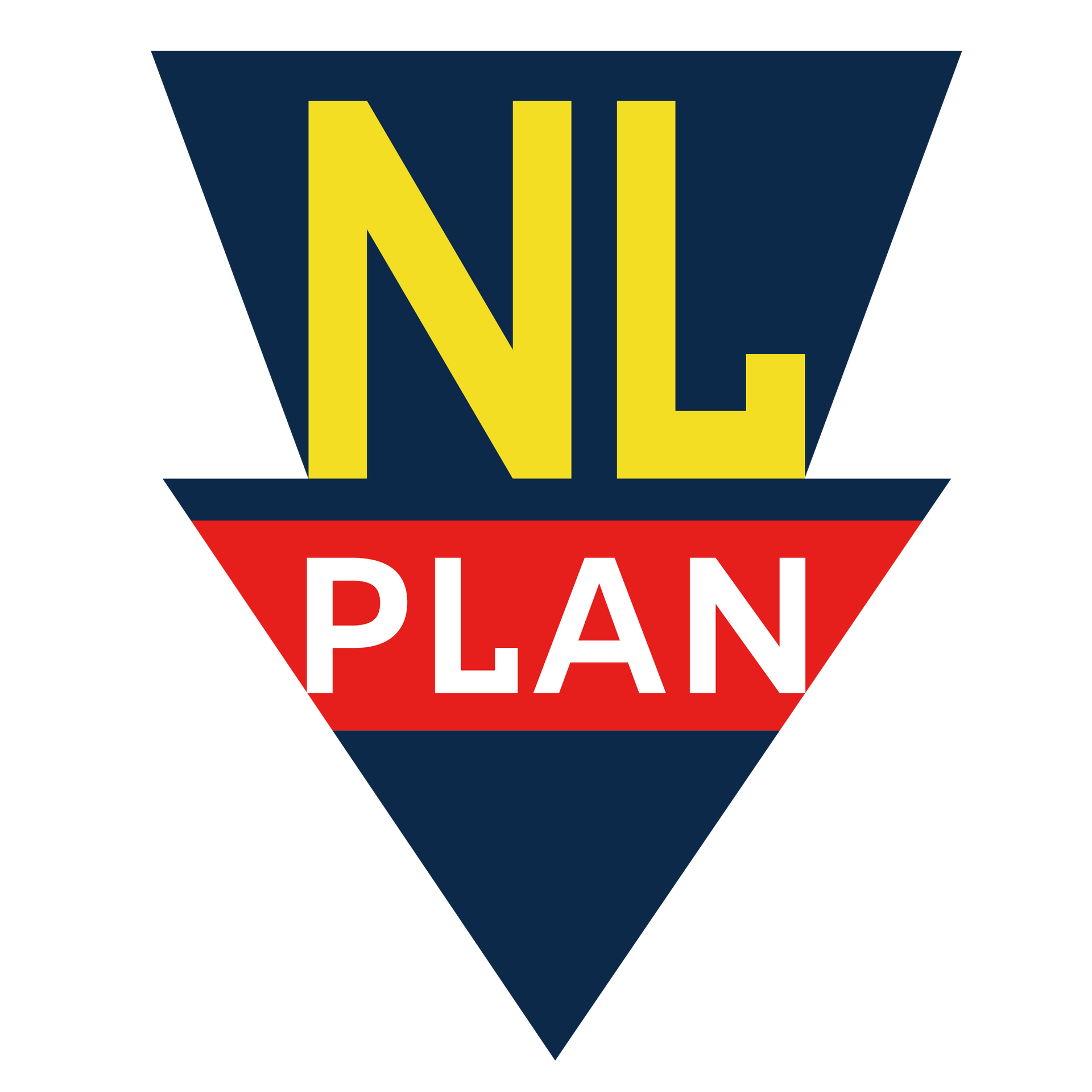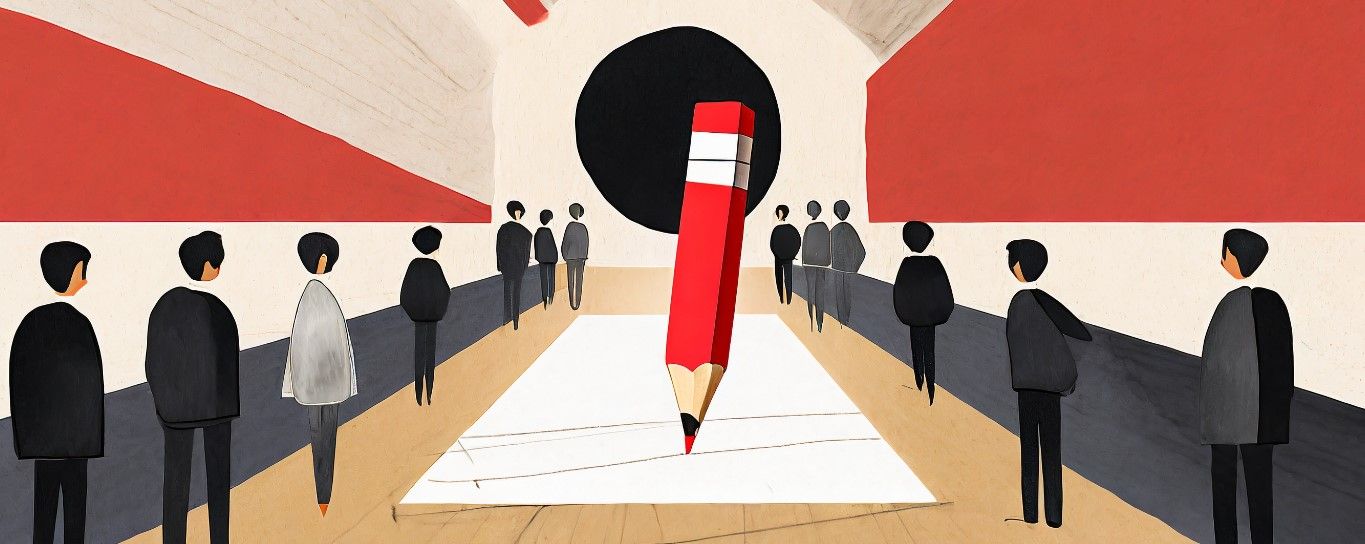Governance and Democracy
Every four years, the population gets to participate in electing specific representatives of the people. Every Dutch citizen receives a voting pass and may put a red cross on a large form with dozens of names on a specific date. Often these names are unknown, with the exception of a few leading figures who get airtime in talk shows of local and national media. This is about image formation and rather resembles state propaganda, but has little to do with a truthful, honest or independent media landscape.
In NL PLAN's view, this is a wan form of 19th-century representative popular sovereignty. A form of sham democracy in which the citizens of the Netherlands have made themselves dependent on an oligarchic government apparatus, which often does not operate in the interest of the citizens. We do not make our political decisions ourselves, elect our governors directly and think we live in freedom.
Most citizens who move along with this system do not see that they go through life as modern slaves, completely dependent on a small group of people pulling the strings. As long as their personal needs and requirements are covered, they can turn a blind eye to the fact that a large part of the population is immersed in poverty. People in poverty are in survival mode and often do not have the energy and/or knowledge to fight for their autonomy. People who fight for this (mostly active residents, small entrepreneurs and self-employed people) are ruthlessly put through the government mincer.
The current government is involving us uninvited in a proxy war on Ukrainian territory between NATO and Russia. This government is thereby fuelling inflation and taking away farmers' land because of a so-called nitrogen problem mainly caused by big polluting industries.
The often one-sided flow of information about the escalation of the war in Ukraine confuses many, puts them in tunnel vision and people speculate. Besides the gruesome game of chess, preceded by a long geopolitical history, which Russian President Putin has been playing with Ukrainian President Zelensky since February 2021, there is a Western embargo war going on and a hefty arms trade. In the process, Dutch citizens are suffering economic consequences.
That war, with many casualties on Europe's borders, but also all other wars, must stop immediately, and perhaps a separation and division of a territory with strict agreements for now is the only peace plan for the local population.
The question is also how the Netherlands can protect itself as a state if it is drawn into a god forbid global conflict. It may have an interest and benefit from the machinery of war, but do Dutch citizens already see themselves soon going up to the front at the behest of NATO to defend the "good cause", whether under the guise of freedom and democracy or not?
Conflicts over territories should not be solved by throwing bombs and senselessly sacrificing tens of thousands or more of young people. How to learn lessons from previous world wars and draw a national border today, that is something for the ladies and gentlemen who have studied for that and need to consult internationally.
This government imposed questionable measures on people for two years because of a virus for which good alternative measures could have been used, provided the comments and solutions of critical experts were also heard. Then society (economy, youth, small entrepreneurs, self-employed, mental health, education and deferred care) would most likely have had to suffer much less damage.
This government does not know the difference between environment and climate, hardly does anything about the environment and bombards the population with fear propaganda about the end of the world by predicting huge climate disasters with models that belong in the realm of pseudoscience.
This government wrongly labelled tens of thousands of citizens fraudsters in the child allowance affair. Do we find it crazy or logical that with all this fear propaganda, there is such a polarity in society?
It is time for the people to take matters into their own hands, so that we move towards an enabling government that helps citizens come into their own. NL PLAN stands for direct democracy and bottom-up renewal of the governance system: a binding referendum and participatory democracy with, for and by residents and entrepreneurs.
Citizens' initiatives, officials and advisory committees
Citizens' initiatives form basis of policy
Starting point is that citizens run their own country. Citizens' initiatives become the starting point of policy. The extent to which citizens can carry out their own initiatives in a paid way is always considered, based on ownership and control.
Civil servants are approachable and directly accountable
Civil servants and administrators have material, power, resources and expertise. Top officials in particular should be (become) approachable and directly accountable to the public, House of Representatives, provincial council, municipal council and media.
On the fringes of national legislation, we seek ways to substantially open, tilt and put into perspective the formal model of governance. Civil servants are directly responsible for their own actions and can be monitored and questioned by these bodies. Media and citizens will also have more opportunities to criticise and question officials, committees, council and Upper and Lower House.
Advisory committees become directly responsible
The formal Dutch governance model relies on advisory committees. Behind the administrators, the real executive power lies with clusters of closed expert committees, behind closed doors. Experts and their reports are of great importance, but they should defend their judgements directly in the public debate and change and/or adjust them where necessary. On that basis, the people or their administrators make their decisions openly and transparently.
Fewer planning agencies, fewer models, more think tanks
In his book A New Social Contract (Prometheus, 2021), politician Pieter Omtzigt points to the mismatch between spin doctors, PR staff and (so-called) expertise in government. There should be room for a range of visionary plans and alternative options from the bottom up.
Administrative participation and simplification
We strive for a political system with more opportunities for participation at the decentralised level while simplifying regulations.
Popular sovereignty through binding referendum
We make the citizens' initiative referendum, binding referendum and corrective referendum at the heart of political decision-making. To do so, we study theory and practice in the world's most advanced referendum democracy: Switzerland.
The Swiss Confederation has been holding referendums since 1849 and has had quarterly referendums in all three levels of government (Federation, Canton and Municipality) for decades. In political structure, our countries now seem to be each other's opposites. The Netherlands is organised top-down and Switzerland bottom-up. On the contrary, in popular character, Dutch and Swiss Calvinist citizenship are close to each other. Especially on a democratic scale, the Netherlands is severely disadvantaged in the Western world. It is time for thorough reform.
The constitution does not yet include the referendum and thus the status of any referendum is formally only advisory. Nationwide, we support proposals to amend the constitution to establish a corrective and binding referendum. Why should the Netherlands not be able or willing to renew itself into a grassroots democracy, in which as many decisions as possible are actively taken by the electorate instead of decisions by representatives of the people?
Put an end to group, party and programme discipline
As many opinions as possible are present in the Houses or councils. Chamber or council members vote after debate, independently, according to their own conscience, without burden or backstabbing. They are not bound by coalition agreements, group discipline, party agreements or exchange games.
We abolish coalition agreements
Coalition agreements devalue the political process into a series of 'fait accompli'. They stifle public debate, turn civic engagement into indifference, create political 'fait accompli' and turn the council into a club of disciplined yes-men (people who dare not express their own opinions). A new coalition starts without an agreement. Every councillor has to take care of every proposal to find half or more seats.
The people elect the mayor
No administrator in the Netherlands is directly elected. We now only elect the controllers, who get to approve the formateur's list. We advocate having prime minister, commissioner of the king and locally the mayor directly elected by the people at the national level.
Fewer government rules
NL PLAN wants an end to the government's unbridled regulatory mess. Much of the rules have to do with government distrust of citizens. The regulatory clutter means that employees in many bodies, such as healthcare and education, hardly get around to doing the real work.
NL PLAN wants the government to listen more to the people in the field, those who do the day-to-day work. So no writing off expensive hours.
Navigate using the red buttons below to read the rest.




